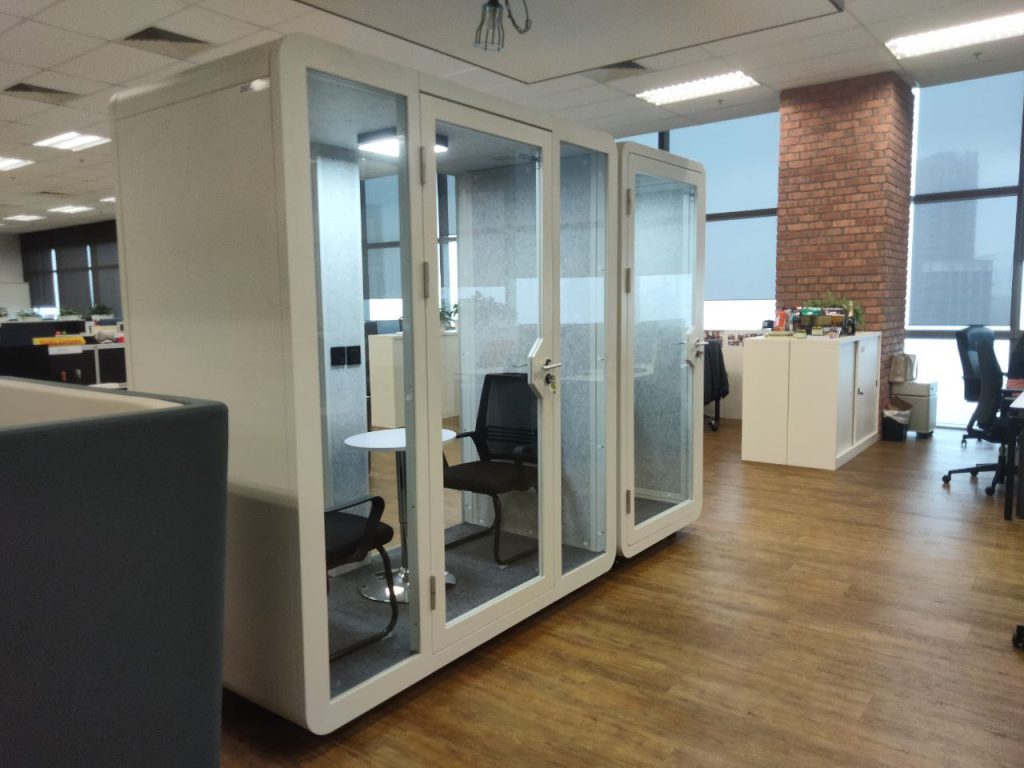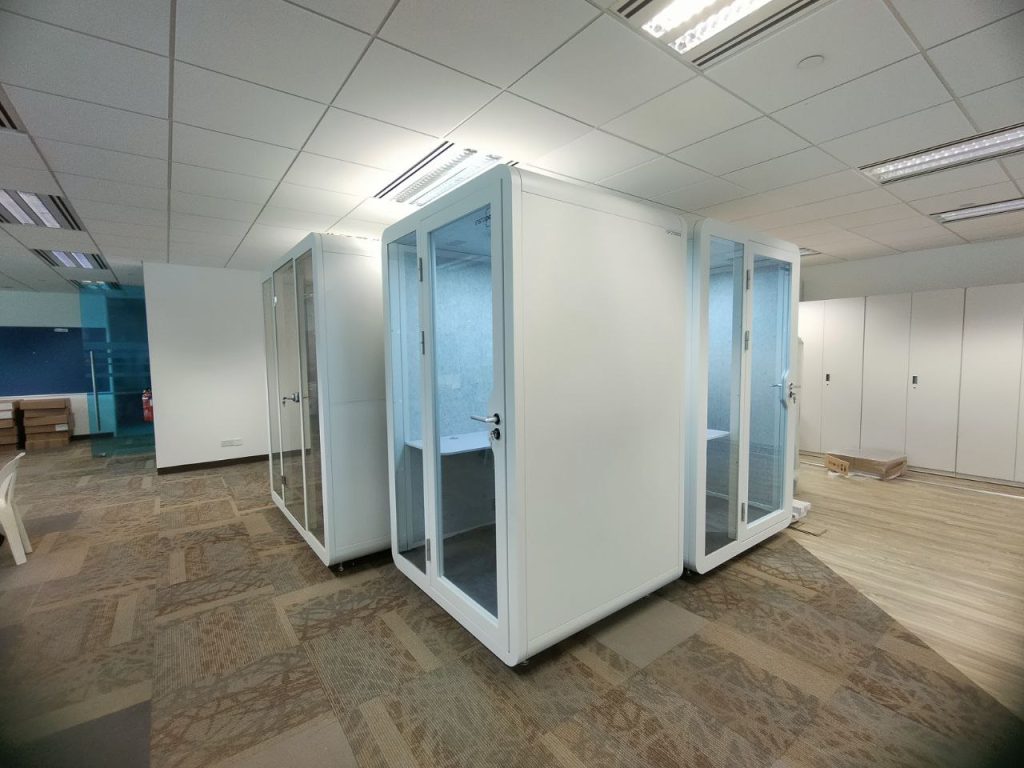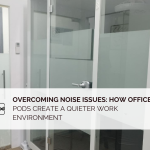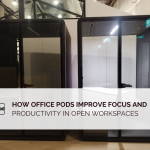No pods added to your quote request yet. Add some now for a free quote!
The Psychological Benefits of Office Pods in the Workplace

In today’s fast-paced work environment, finding the balance between collaboration and focused work has become increasingly challenging. Open-plan offices, which were once hailed as the solution to fostering communication and breaking down barriers, are now often criticized for the distractions and noise they introduce. In response, many companies are turning to office pods—self-contained, soundproof spaces designed to provide employees with a quiet area to focus, relax, or engage in private conversations. Beyond their practical benefits, office pods offer significant psychological advantages that can improve employee well-being and productivity.
1. Reduction of Stress and Overstimulation
One of the primary psychological benefits of office pods is their ability to reduce stress and overstimulation. Open-plan offices can be overwhelming, with constant noise, movement, and visual distractions. This environment can lead to cognitive overload, where the brain struggles to process too much information at once, resulting in increased stress levels.
Office pods offer a refuge from this sensory overload. The soundproofing and enclosed nature of these pods create a serene environment where employees can retreat to collect their thoughts and focus on their tasks without interruption. This reduction in external stimuli allows the brain to relax, leading to lower stress levels and improved mental clarity. In turn, employees are better able to manage their workloads and avoid the burnout that often accompanies high-stress environments.
2. Enhanced Focus and Productivity
Distractions are a significant barrier to productivity in the workplace. According to a study by the University of California, Irvine, it takes an average of 23 minutes and 15 seconds to regain focus after an interruption. In an open office, these interruptions can come from a variety of sources—chatter from colleagues, ringing phones, or even the buzz of office equipment.
Office pods provide a dedicated space where employees can immerse themselves in their work without the risk of being disturbed. The ability to concentrate fully on a task is essential for deep work—intense, uninterrupted periods of focus that lead to higher-quality outputs. By minimizing distractions, office pods enable employees to complete tasks more efficiently and with greater accuracy, ultimately enhancing overall productivity.
3. Support for Mental Health and Well-being
Mental health is a growing concern in the modern workplace, with many employees experiencing anxiety, depression, or stress-related disorders. The design and layout of an office can have a profound impact on mental well-being. Open-plan offices, with their lack of privacy and constant noise, can exacerbate feelings of anxiety and stress, particularly for introverted employees who may find such environments overwhelming.
Office pods offer a safe space for employees to escape the pressures of the open office and recharge. Whether used for a quick meditation session, a few moments of solitude, or a confidential conversation with a colleague, these pods provide a private environment where employees can address their mental health needs. The sense of control that comes from having access to a personal space can reduce feelings of anxiety and contribute to a more positive workplace experience.
4. Promotion of Autonomy and Control
Having a sense of autonomy and control over one’s work environment is crucial for job satisfaction and psychological well-being. In open-plan offices, employees often have little control over their surroundings—they are subject to the noise, temperature, and lighting preferences of others. This lack of control can lead to frustration and a sense of helplessness, which can negatively impact morale and motivation.
Office pods empower employees by giving them the ability to choose when and how they work. Whether they need a quiet place to concentrate on a complex task or a private space to take a phone call, the availability of office pods allows employees to take control of their work environment. This sense of autonomy can lead to higher job satisfaction and a greater sense of ownership over one’s work, contributing to a more motivated and engaged workforce.
5. Encouragement of Creative Thinking
Creativity thrives in environments that offer both collaboration and solitude. While open offices are designed to foster collaboration, they often fall short when it comes to supporting the reflective thinking necessary for creativity. Office pods, on the other hand, provide a space where employees can step away from the group and engage in deep, uninterrupted thought.
The ability to retreat to a quiet space can be particularly beneficial for creative tasks that require concentration, such as brainstorming, problem-solving, or writing. In a pod, employees can think freely, without the distractions and interruptions that are common in open offices. This environment supports the kind of deep, reflective thinking that is essential for generating innovative ideas and solutions
Conclusion
Office pods represent a thoughtful response to the challenges posed by open-plan offices. By offering a quiet, private space where employees can escape distractions, manage stress, and take control of their work environment, office pods contribute to improved mental well-being and productivity. As more companies recognize the importance of employee mental health and the need for spaces that support focused work, the adoption of office pods is likely to continue growing. These small, self-contained spaces have the potential to make a big impact on the psychological health and overall performance of employees, making them a valuable addition to any modern workplace.
Check these out too!
-
The Role of Meeting Pods in Agile Work Environments: Flexibility and AdaptabilitySeptember 26, 2024/0 Comments
-
How Office Pods Improve Focus and Productivity in Open WorkspacesSeptember 16, 2024/
-




